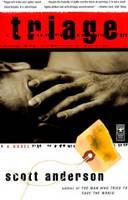the meeting from hell and the subject from the future ...
heaps of stuff going on lately ...
1. Last week, CJ and I took 28 budding Y8 writers to see Michael Prior at the Wheelers Hill Library (ajoining the excellent Monash Gallery). We all caught the public bus together and then chatted about writing all afternoon. Michael was great, had some interesting ideas and took us through some stimulating writing activities; he had the kids eating out of his (pen)hand. We have some talented kids and some great writers - Ryan and Sarah in particular. It's always refreshing to be with these young people in outside of school settings - without all the baggage that comes with a school setting. The sun was out and the kids were good and chatty and ... you know ... it was good ...
then I arrived back at school ...
KB was at the Curriculum Committe meeting. The week before she had asked me to put together a unit/subject outline for a 'digital english' kind of thing, as the curriculun commitee is in the process of finalising subject offerings for next year. We have been discussing for ages now the need to redesign the literature electives for y8, 9, 10 so as to encourage literature at y11 and 12 - which hasn't been taught at HVSC for a few years now, and this was our chance to suggest some other offerings.
Anyway, I put together the outline and wanted to go and talk about it to the other members of the committee - but this ended up being more a justification. The committee wanted us (KB and I) to justify these new subjects - there was a lot of contention and misunderstanding that was just really negative. KB has come back fairly distressed from these meetings in the past. I now fully understand why. It was a shocker. Particular staff members just had really stupid things to say - things that showed how unintellectual the whole process really is and how little thought really goes into the selection and design of the whole school curriculum. I was shocked and appalled! (yeah!)
Needless to say that KB and I went into bat pretty heavily and I think we held our ground. The rest of the meeting was run really badly, both in terms of chair and participants - a major waste of time.
After the meeting, HCa (new AP and convenor) told me that next time I wanted to come to the meeting I needed to let her know beforehand. She said that she didn't want the meeting ambushed and that having uneven faculty representation was akin to 'branch staking'. She was quite upset (almost teary). I had been under the impression that these meetings were open to all staff - especially at this time when next year's subject offering were up for 'discussion'. Apparently not anymore.
Anyway, I would have thought my presence would have been appreciated - someone showing an interest! I made plenty of comments (perhaps too many) and quite enjoyed myself in a masochistic kind of way.
On another thing, I have decided to change my Y12 policy. Some of the boys are far too casual towards their learning and towards the class. I'm not taking any of their shite any more; this includes lateness, swearing, arrogance towards other students, sexism, poor work attitudes. If these persist I will be sending them to the VCE study centre with instructions to do their own private study. There are two main offenders. The rest of the class is growing tired of them and their rot and have been making comments. I will not these few arrogant bastards ruin the year for the students who want to do the right thing.
Part of the problem is our VCE co-ordinator is a soft touch. He wants these guys to be his mates and they don't respect him - or at least they tell me this often. I don't care if these guys are my mates - I just them to do their work and learn some things, be respectful to other class members. Their is much more I can say here, but perhaps anothe day.


